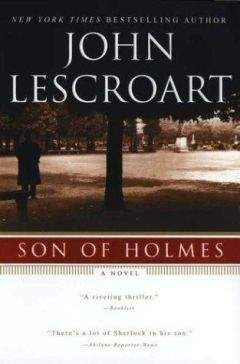Jean Plaidy - The Murder in the Tower: The Story of Frances, Countess of Essex

Скачивание начинается... Если скачивание не началось автоматически, пожалуйста нажмите на эту ссылку.
Жалоба
Напишите нам, и мы в срочном порядке примем меры.
Описание книги "The Murder in the Tower: The Story of Frances, Countess of Essex"
Описание и краткое содержание "The Murder in the Tower: The Story of Frances, Countess of Essex" читать бесплатно онлайн.
Then she recounted in detail the interview which had just taken place, coloring it a little to make herself a trifle more audacious than she had been, taking the part of the Earl of Northampton and Frances Howard alternately.
“Mistress Frances!” cried one of the girls. “You’ll be the death of me. And did you, in truth, put your tongue out at my lord?”
“I did. He asked for it. I fancy he wished he hadn’t provoked me. I wished that someone very important … someone like the King or the Prince could have come in and seen me standing there putting my tongue out at the Earl of Northampton.”
“The King would have thought it a great joke, I am sure. He would have given you a high place at Court and made you one of his favorites.”
“I should have to dress in breeches and cut off my hair first,” said Frances, catching at her long curls and holding them lovingly. “The King has no eyes for girls. You should know that.”
“Has he not then, Mistress Frances?”
“Do you know anything?”
“We dare not listen at doors as you do, Mistress,” put in another girl quietly.
Frances swung round and slapped the girl across the face.
“If I wish to listen at doors, Miss, I will. And think again before you speak thus to me. I can have you whipped; and don’t forget it. I might even do it myself … to make sure the blood is drawn.”
Her eyes were suddenly dark with anger. The girls drew back. She meant what she said. She could be friendly at one moment; she could be generous; but if she were offended, vindictive.
The girl was quiet, her eyes downcast as gradually a red mark appeared where she had been struck.
Frances turned her back on her and went on: “I can scarce wait to go to Court. I’m tired of being a child in the country.”
“Marriage is but the first step, Mistress. And when you go to Court all the men will—”
“Go on!” commanded Frances. “Fall in love with me because I’m so beautiful. That’s what you mean, is it not? I wonder what my bridegroom will think of me. He is only fourteen and the marriage is not going to be consummated yet. I have heard them talk of it. They talk of nothing else. I am to go to Court, be married and then sent back here … back to my lesson books, they say, until I am of an age to share my husband’s bed. I want to tell them that I am of an age now.”
“Perhaps it is better to wait.”
“I hate waiting. I won’t wait. I might wait until I’m no longer beautiful.”
“You’ll always be beautiful.”
“Of course I shall. I shall make sure that I stay beautiful as long as I live.”
“Everyone tries to do that, Mistress.”
Frances was thoughtful. Her own mother was beautiful still, although not as she must have been in her youth. Perhaps it was the fine clothes and jewels she wore that dazzled the eyes.
“I know of a way to stay beautiful,” said a quiet voice, and there was silence, for it belonged to the one who had recently been slapped.
Frances turned to her, her face alight with interest. “How, Jennet,” she demanded, and all the venom was gone from her; she spoke as though there had been no friction between them.
“By spells and potions,” said Jennet.
“Do they really keep people beautiful?” asked Frances.
“They do everything. There are love philtres to win the love of those who are indifferent. There are potions to destroy those who stand in your way. It’s called trafficking with the devil.”
“How I should love to traffic with the devil!” cried Frances, delighted because she was shocking them all so much.
“It’s the way to get what you want … if you’re bold enough,” said Jennet.
“I would be bold enough,” declared Frances.
The next weeks passed quickly for Frances. She was constantly being measured for the clothes she would need for her wedding, and when she saw the jewels which she was to wear she declared she had never been so happy in her life.
She knew that when the wedding had taken place she must return to the country, but she was not going to think about that.
In a few weeks’ time she would set out for London in the company of her parents, taking her elaborate wardrobe with her; she would see that Court of which she had heard so much; she would actually live at it until the ceremony was over. She wondered whether she could persuade her parents to allow her to remain in London. It was a pity that Great-Uncle was there to make their decisions for them. He would most certainly not agree.
But Frances was one to live in the present without giving much thought to the future. She was going to Court; let that suffice.
Her mother was as excited as she was. Lady Suffolk loved pageantry, and this wedding was going to be one of the great Court occasions.
“You see, my daughter, the King is eager for it. And he and the Queen and Prince Henry will all honor you with their presence.”
There were dances to be learned. What joy! Frances loved to dance. There were curtsies to be practiced. There was advice on a hundred points.
“You’ll do well,” her mother told her, “as long as you are not over-saucy. That might amuse the King, but the Queen and the Prince wouldn’t like it. It is more important that you please the Queen and the Prince than the King. And I doubt not that you will.”
“I have heard, Mother, that girls do not please the King.”
“That is something to keep in the mind and not on the tongue.”
Frances allowed the tip of her tongue to appear between her perfect teeth.
“Great-Uncle Northampton has already warned me,” she said.
“Remember it,” admonished her mother.
How she enjoyed those days! The gaiety, the color, the excitement. What an exhilarating place was London, and what fun it was to ride through the streets and see the women curtsy and the men doff their hats as she passed.
Many of them recognized her, and all seemed to be aware that she was to be married. She sat her palfrey demurely and, with her long hair falling round her shoulders, was a charming sight.
“God bless the little bride!” the people cried.
The bridegroom was somewhat disappointing. She was not sure why. Robert Devereux was a handsome enough boy. But although he was two years older than she was, he seemed younger.
“He has not the incomparable looks of his father,” people said; and others retorted: “Look where they led him.”
But all was well now. The Essex wealth and estates had been returned to young Robert, and James the King was eager to honor him.
The youth of the bridal pair enchanted everyone.
“Of course they are too young as yet….”
“But what an alliance!”
“It’s as well to make it when they’re young, for marriage at twelve and fourteen is as binding as at any other time.”
Binding, pondered Frances. She was bound to this shy boy!
They sat side by side at the wedding feast; he scarcely spoke, but she chattered away; and if she was disappointed in him, he was not with her. He thought his bride all that a bride should be.
She explained to him that the man who had written the masque which was now being performed, and who was taking the principal part in it, was Ben Jonson, the leading dramatist and actor who had been engaged for their pleasure.
“Look at the dancers!” she cried. “And is the scenery not wonderful? Did you know that Inigo Jones made the scenery?”
Robert said that he had heard it was so; and there were not two better artists in the Kingdom than Ben Jonson and Inigo Jones.
Frances clasped her hands together and stared ahead of her at Hymen, who was bringing forward his bride; dancers were springing from the great globe which Jonson was turning; and never had Frances seen such an array of jewels, never such dancing that was both wild and graceful.
“Oh what a wonderful wedding this is!” she cried.
“I am so happy because you are,” Robert told her.
“We shall dance together when the masque is over.”
“I do not dance well,” Robert told her.
“I do. I dance beautifully, and people will look at me, not you.”
“Yes,” said Robert humbly, “I suppose they will.”
“Soon we must speak to the King and Queen,” she told him. “Are you afraid?”
“A little.”
“I am not. I long to speak to them.”
She stared enrapt at the table at which the Royal Family were sitting, and as she did so Prince Henry looked in her direction, and for a few seconds they gazed at each other.
Frances felt suddenly angry.
In the privacy of home the Howards always said that the only family good enough to mate with was the Royal family.
Frances believed it. That boy seated on the right hand of his father, so handsome in a rather ethereal way, was the one who should have been her husband.
If Frances Howard had been married that day to the heir to the throne she would have been completely happy.
Did she want to be Queen then? Was that her ambition? But she had not thought of that until this moment.
There was something about that boy which appealed to her. She thought: If he were my husband I should insist that I was old enough to be truly married.
Yet he might have been slightly younger than she was. He was aware of her though, she was sure of it.
She turned to look at Robert and a slight distaste curled the corners of her mouth.
He said to her then: “You know I have to go abroad very soon? I have to learn how to be a soldier and how to speak foreign languages. It is all part of my education. Now that I am married I shall long to come back to my wife.”
Frances did not answer. She scarcely heard Robert. She was imagining that she was married to Prince Henry and remembering some words she had heard a little while ago.
“It’s the way to get what you want … if you’re bold enough.”
Where had she heard that? And was it true?
She remembered then. It was Jennet, the sly girl who always seemed to know so much more than the others.
Robert moved a little closer to her and took her hand in his.
Many watching smiled indulgently, telling themselves that they had rarely seen such a charming bride and groom.
The farewells had been said. Robert had gone abroad; Frances had returned to the country while her parents stayed at Court pursuing their exciting life.
Frances was sullen.
“How long will it take me to grow up?” she had demanded.
Her mother had laughed at her.
“Two years, three years.”
“It is an age.”
“Time passes, child. Go back to your lessons. You’ll be surprised how quickly you’ll become a woman. Don’t try your eyes with too much learning. We don’t want their brightness dimmed. And when you come to Court, you’ll come as a Countess. Remember that. Farewell, little Countess of Essex.”
And so she had returned. The house seemed like a prison. She hated her servants and her governesses. She did not want to learn lessons … not the sort that came from books.
She wanted to learn from the delicious experience of life.
Her great comfort was Jennet.
She often made the girl come to her bed and talk half the night of spells and potions, and how, by careful use of them, all that one desired could be obtained.
It was her belief in this which helped Frances to live through the time of waiting.
A PAGEANT AT WHITEHALL
During the four years which had elapsed since that day when Robert Carr had fallen in the tiltyard at Whitehall he had been the King’s constant companion, and it was a source of great irritation to many at Court that the young man remained the first favorite.
Robert, although far from intellectual, had proved himself to possess a shrewd intelligence. He was humble in the King’s presence—a welcome change from the manners of some of the petted boys of the past; he admitted that he was no scholar and confessed that he doubted whether he ever would be. But James replied that although he was without knowledge of literature and had had little experience, his dear boy was possessed of a calm, clear mind, which enabled him to reason with logic. He liked well his manners, and his company was the most enjoyable at Court.
Robert made a great effort not to annoy important ministers: he was never arrogant toward them; and when they begged him to lay this or that petition before the King he would always promise to do his best. In time they began to say of him: “There could be worse. And if the King must have a lap-dog this is the best breed.”
Robert was becoming ambitious. He believed that in time he would occupy some of the highest posts in the kingdom. James had as much as promised that he should.
“When ye’ve acquired a little more nous, Robbie.”
In the meantime his doting benefactor had knighted him, had given him a fine estate and promised him a rich wife. The Lady Anne Clifford’s name had been mentioned in this connection.
Robert had not been eager to marry, and he fancied that his reluctance had not displeased his master. Robert was content to wait. He believed that a great fortune could be his and that he must approach it step by cautious step.
When the Earl of Northampton, that wily statesman, had decided to win his friendship, Robert had met him more than half way. Northampton—the secret Catholic—wanted alliance with Spain and believed Robert might help him to it. Robert was flattered by the attention of the old man but was sorry that, because of it, the Queen disliked him more than ever; and because Prince Henry supported his mother, that meant that the Prince was his enemy.
But Robert shrugged aside this unpleasant fact. He knew that Prince Henry would have been his enemy in any case because he hated all his father’s favorites.
The climb was slow but steady; and each week saw the King’s affection deepen.
But one day when they walked together in the gardens of Whitehall, James talked seriously to Robert.
“Robbie,” he said, “I’d make ye my secretary if you were more nimble with your pen. But as you are, laddie, it’s difficult. Now if you had a clever scribe who could answer correspondence in your name … why then ’twould be an easy matter. Ah, how I wish ye’d stuck at your lessons when you were a wee mannie.”
Robert was thoughtful. There was a suggestion behind the King’s words which he might have thought of before.
A great ceremony was taking place at the Palace of Whitehall and the Queen declared again and again that rarely had she been so happy in the whole of her life.
There were to be days of rejoicing, as was only fitting; and there was nothing Anne enjoyed more than balls and masques. Inigo Jones had been summoned and given the task of turning Whitehall into a magic setting for all the pageants and spectacles which would be devised by poets such as Daniels and Jonson.
Подписывайтесь на наши страницы в социальных сетях.
Будьте в курсе последних книжных новинок, комментируйте, обсуждайте. Мы ждём Вас!
Похожие книги на "The Murder in the Tower: The Story of Frances, Countess of Essex"
Книги похожие на "The Murder in the Tower: The Story of Frances, Countess of Essex" читать онлайн или скачать бесплатно полные версии.
Мы рекомендуем Вам зарегистрироваться либо войти на сайт под своим именем.
Отзывы о "Jean Plaidy - The Murder in the Tower: The Story of Frances, Countess of Essex"
Отзывы читателей о книге "The Murder in the Tower: The Story of Frances, Countess of Essex", комментарии и мнения людей о произведении.















